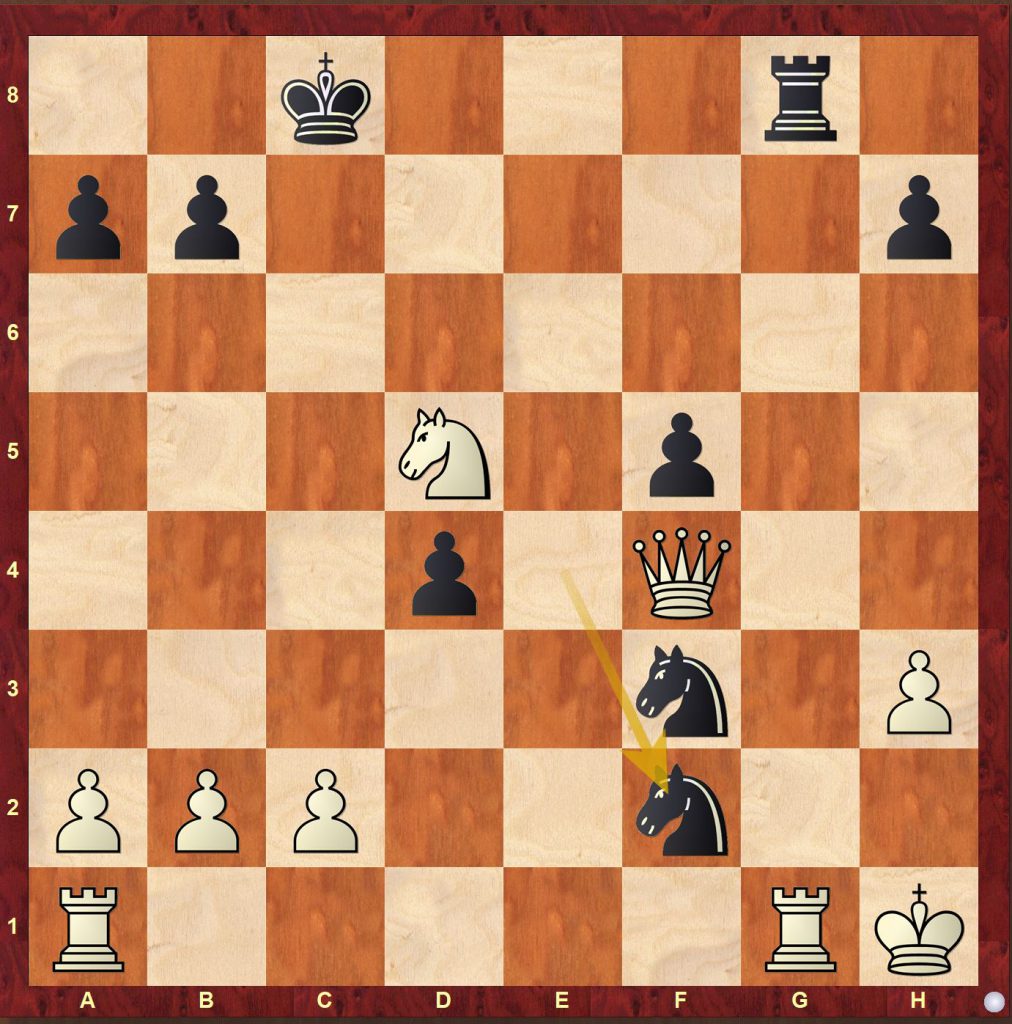The World Championship Match of 1907 played in the US was a complete disaster for Frank Marshall as he was defeated by eight wins to none with 7 draws. In “Marshall’s Best Games of Chess”, Marshall doesn’t even mention the match taking place which probably indicates just how much the match affected him. Despite the score, I still think that Marshall could be proud of his contribution to an entertaining match full of interesting games. Certainly, I think the score only became particularly lopsided as Marshall lost heart towards the end of the match and struck out wildly looking for a win at all costs.
The first game of the match, won by Lasker in superlative style, has been annotated by almost everyone already so I’m going to skip that one and move on to the second game which featured some fascinating tactics!
A video of this article is also available at https://www.youtube.com/watch?v=57JDBisizH0 As always, a playable version of this game is available at http://cloudserver.chessbase.com/MTIyMTYx/replay.html
Lasker,Emanuel – Marshall,Frank James [C11]
World-ch07 Lasker-Marshall +8–0=7 USA (5 cities) (2), 29.01.1907
[https://matthewsadler.me.uk]
1.e4 e6 2.d4 d5 3.Nc3 Nf6 4.Bd3 c5 5.exd5 cxd4 6.Bb5+ Bd7 7.Bxd7+ [7.dxe6 Bxb5 wins a piece]
7…Qxd7 8.dxe6 Qxe6+ [8…fxe6 9.Nce2 Nc6 10.Nf3 e5 is also pretty nice for Black. Also during World Championship matches in the 1900s, White had problems equalising!]
9.Nce2 Nc6 10.Nf3 Bb4+ 11.Bd2 0–0–0 12.0–0 Rhe8 13.Nf4 Qg4 [A strange move giving White the extra tempo h3. Possibly Marshall was looking to create a weakness to be exploited by …g5–g4? Or was he thinking of installing a knight on e4 and wanted to make f2–f3 more difficult…?]
14.h3 Qf5 15.Nd3 Bxd2 [15…Bd6 looks very tempting followed by …Ne4 and …g5–g4]
16.Qxd2 Ne4 17.Qf4 Qd5

18.Qg4+ [Computer chess from Lasker! I’m not sure I’d ever think of grabbing that pawn on g7! It seems to be sound though, and in fact Marshall needs to be very precise to prove compensation for the pawn. However, it is very fraught for White too!]
18…f5 19.Qxg7
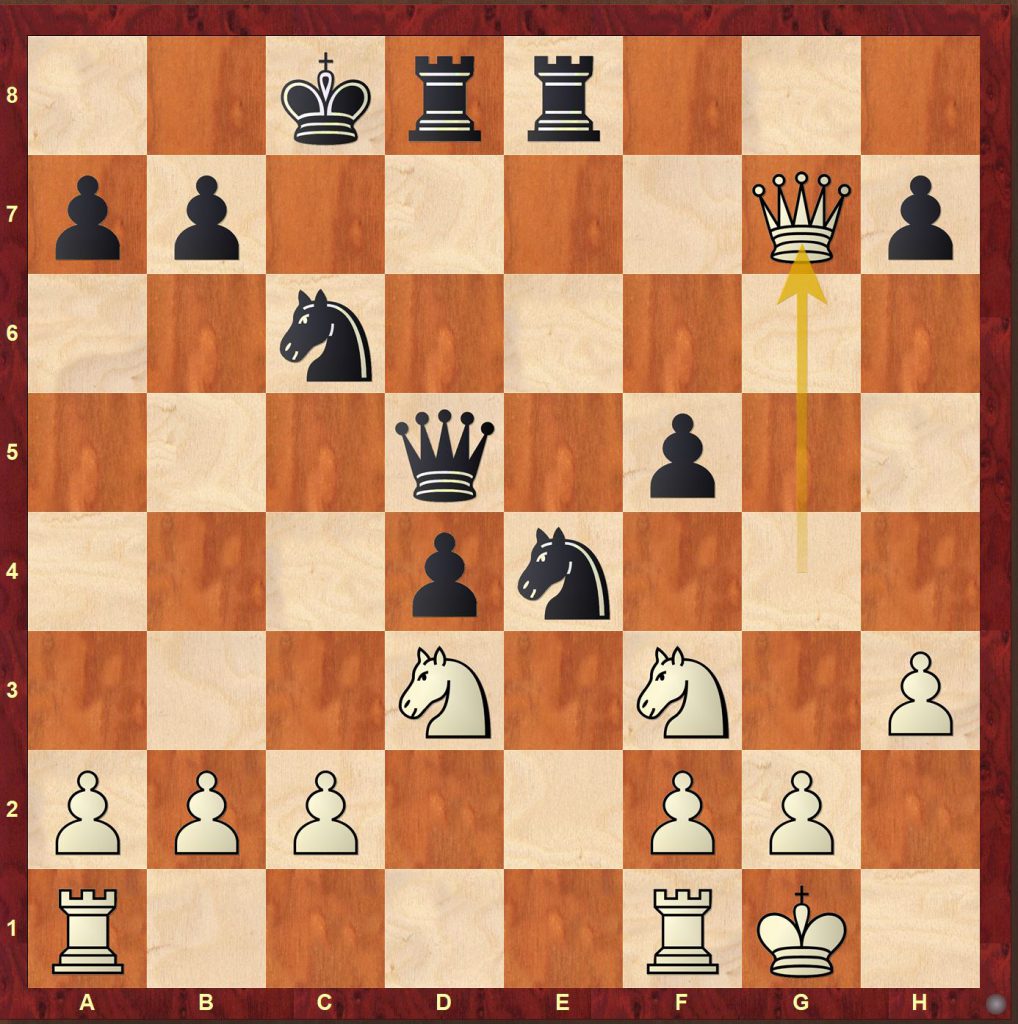
19…Rg8
[19…Nd2
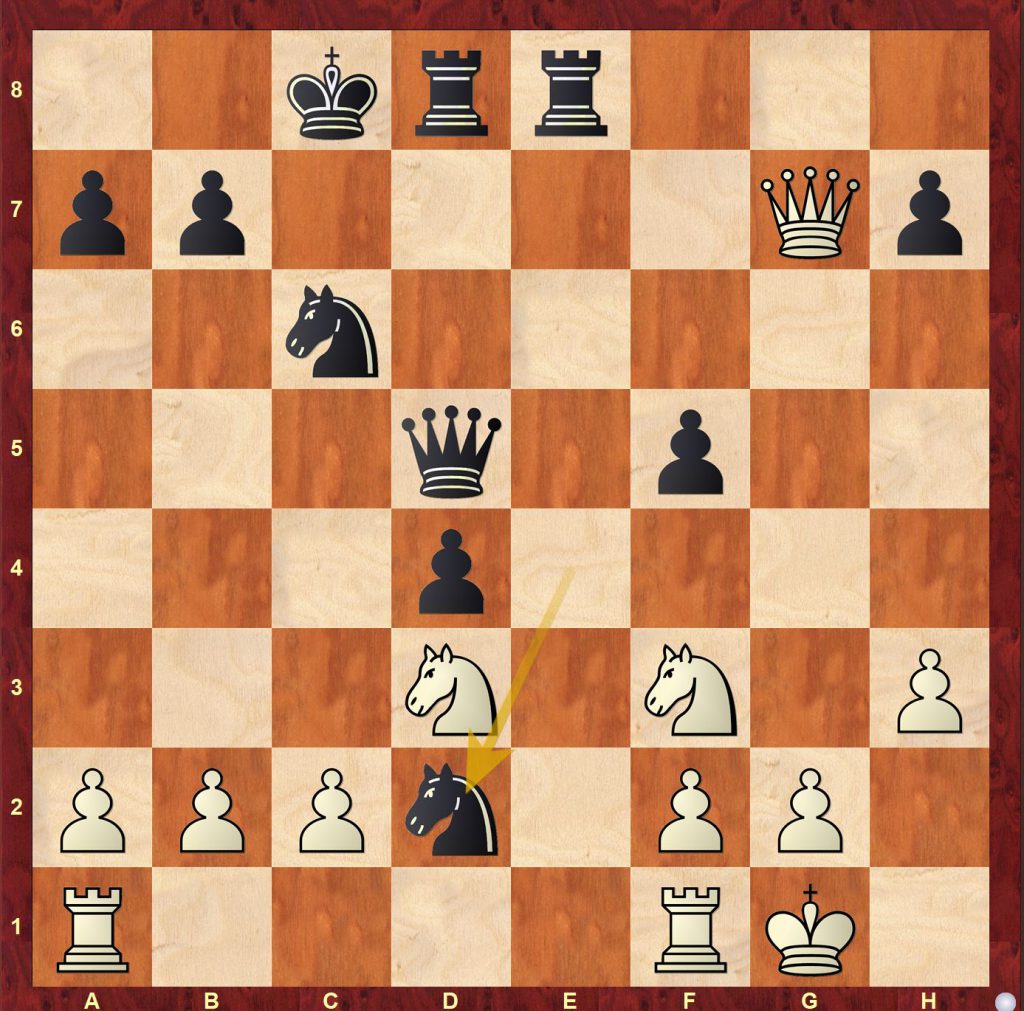
was my #1 line, and it does indeed seem to be Black’s best. 20.Nxd2 Rg8 21.Nf4 Qd6 22.Qf7 (22.Qxh7 Qxf4 23.Rad1 Qg5 24.g3 Rd7 trapping the queen! 25.h4 Qg4 26.Qh6 f4 is very dangerous for White 27.Kg2 Ne7 The engine move, with the threat of …Nf5 or …Ng6; 22.Nc4 Qxf4 23.Qf6 Rxg2+ 24.Kxg2 Rg8+ wins) 22…Qxf4 23.Rad1 (23.Nc4 b5 is very awkward! (23…Qf3 24.Nd6+ was White’s trick!) ) 23…Rg6 24.g3 is the engine move, threatening Qxg6 and forcing Black to take the draw by perpetual (24.Rfe1 Ne5 25.Qe7 Rdg8 26.Qc5+ (26.Qxe5 Rxg2+ 27.Kf1) 26…Nc6 27.Qd5 Rxg2+ 28.Qxg2 Rxg2+ 29.Kxg2 I wasn’t 100% sure how good this was for Black, but my engine has no doubts! 29…Ne5 30.Re2 Qh6 is very strong with the idea of …Ng6–f4+! 31.Rxe5 Qg7+) 24…Rxg3+ (24…Rdg8 25.Kh1 Qg5 26.Rfe1) 25.fxg3 Qxg3+ 26.Kh1 Qxh3+ 27.Kg1 Qg3+]
20.Qh6 [20.Qxh7 Nf6]
20…Nd2 [20…Rd6 I thought this would still be good for Black. 21.Qf4
a) 21.Qxh7 Nf6;
b) 21.Qh5 Nf6;
c) 21.Qh4 Nd2;
d) 21.Qc1 Rdg6 22.Nf4 (22.Nh4 Rxg2+
23.Nxg2 Nc3 24.Ndf4 Rxg2+ 25.Kh1 (25.Nxg2 Ne2+) 25…Qf3

26.Nxg2 Qxh3+ 27.Kg1 Ne2#) 22…Rxg2+ 23.Kh1
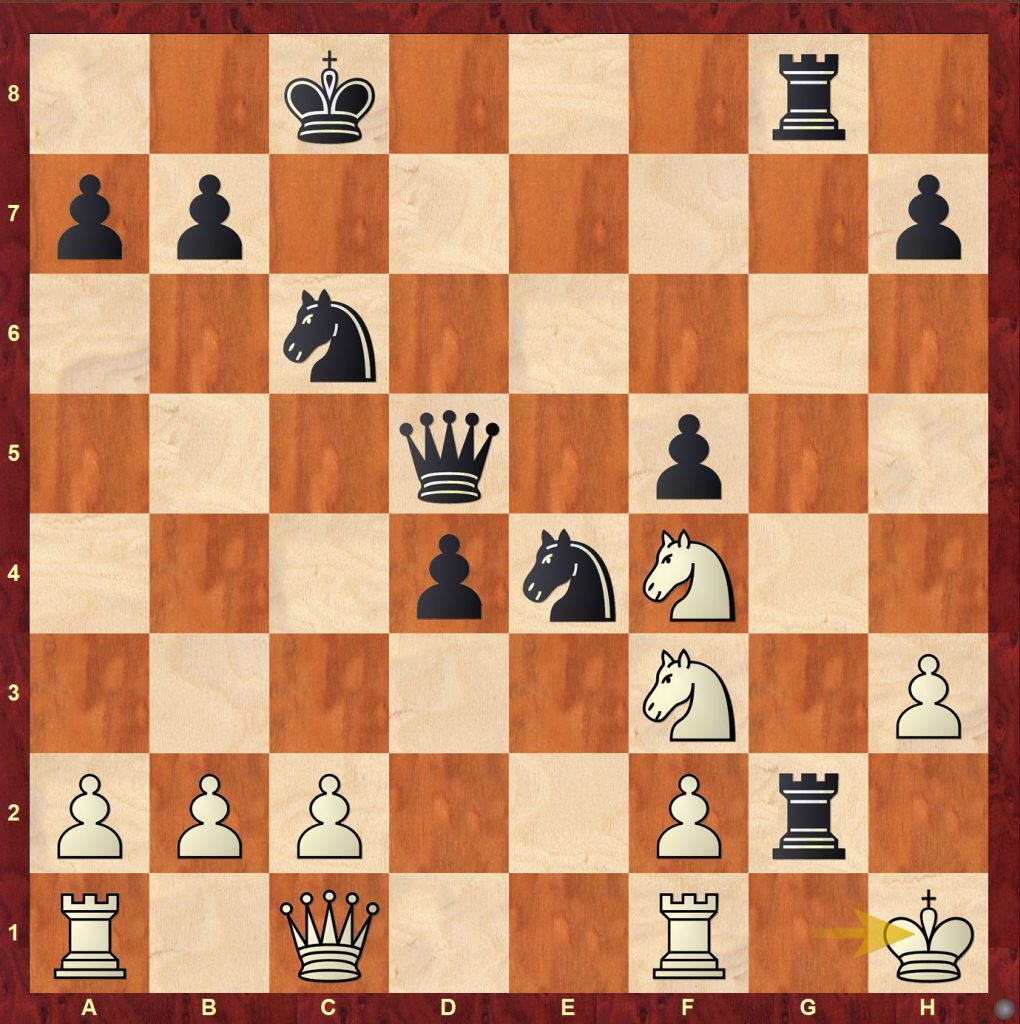
(23.Nxg2 Nd2 24.Nfe1 Nf3+ 25.Kh1 Nxe1) 23…Ne5

I was so pleased to spot this one! 24.Nxd5 (24.Nxg2 Nxf3 25.Qf4 Ned2 is crushing; 24.Nxe5 Nxf2+ 25.Rxf2 Rg1+ 26.Kh2 Qh1#) 24…Nxf3 25.Qf4 Rg1+ 26.Rxg1 Nxf2#
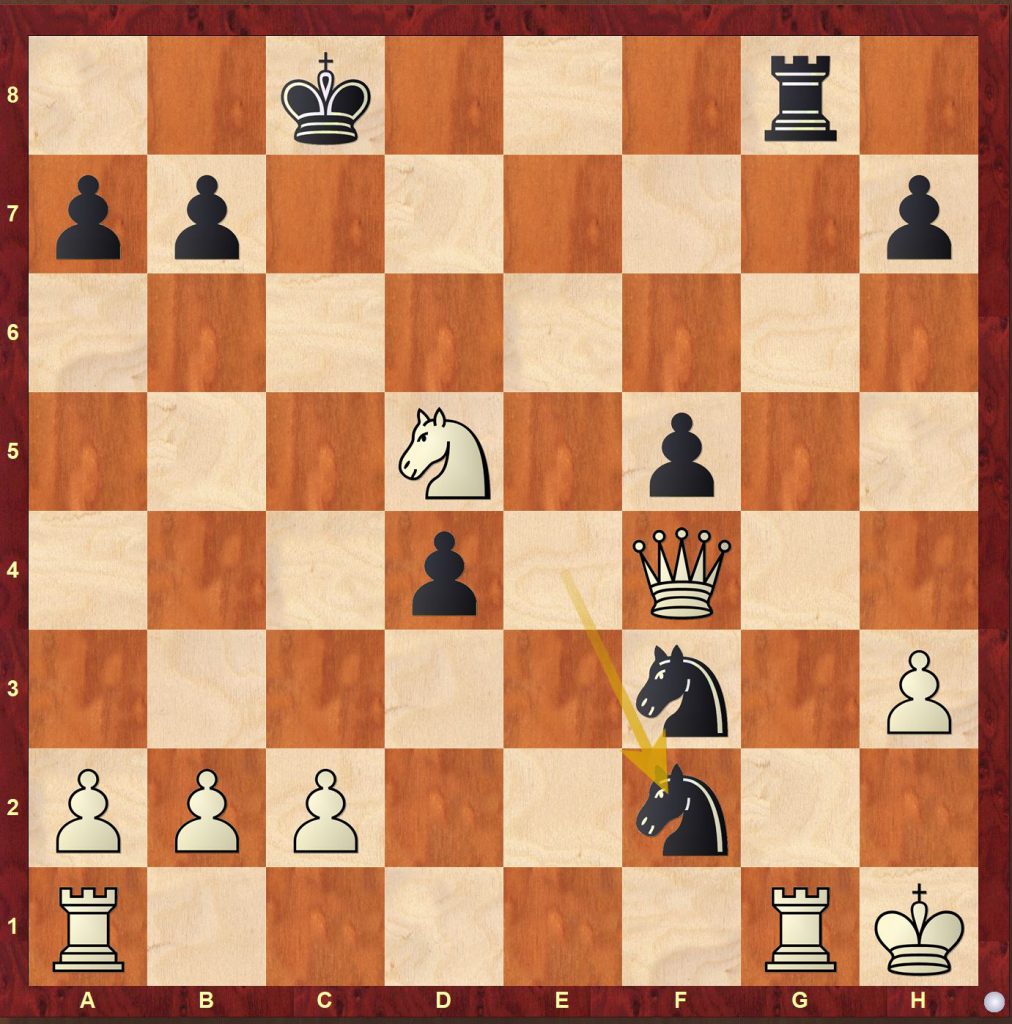
21…Rdg6 (21…Nd2 22.Qxd2 Qxf3 23.g3 is an extra tempo for Black compared to the game, but still not easy to find a way through. 23…Rdg6 24.Nf4 and there is not even a perpetual) 22.Nh4 (22.g3 Nxg3 23.fxg3 Rxg3+ 24.Kh2 (24.Kf2 Rg2+ 25.Ke1 Qe4+ 26.Qxe4 (26.Kd1 Qe2+) 26…fxe4 is good for Black) 24…Rg2+ 25.Kh1 R2g3 with a draw by perpetual was my main line.) 22…Nc3 In my enthusiasm, I had unfortunately overlooked White’s simple counter 23.Qxf5+ Qxf5 24.Nxf5 Rxg2+ 25.Kh1 R2g5 26.Rg1 and White is a pawn up in the endgame…]
21.Qxd2 Qxf3 22.g3 h5 23.Qf4 [This is a cheerless position for Black: a pawn down and clear pawn weaknesses everywhere. Marshall was heading for a 0–2 start to the match.]
23…Qd5 24.Rfe1 Rde8 25.Rxe8+ Rxe8 26.Re1 Re4 27.Qg5 Nb4 28.Rxe4 fxe4 29.Qxd5 Nxd5 30.Nc5 e3 31.Nd3 h4 32.gxh4 Kd7 33.Kf1 Ke6 34.Ke2 exf2 35.Kxf2 Kf5 36.Kf3 Nf6 37.Nc5 b6 38.Nd3 Nh5 39.Nc1 Nf6 40.Ne2 Ke5 41.Ng3 Nd5 42.h5 Ne3 43.h6 Kf6 44.c3 Nd1 45.cxd4 Nxb2 46.Nf5 Kg6 47.d5 Nc4 48.Ke4 Na5 49.d6 Nb7 50.Kd5 Nd8 51.d7 a5 52.Ne7+ 1–0



